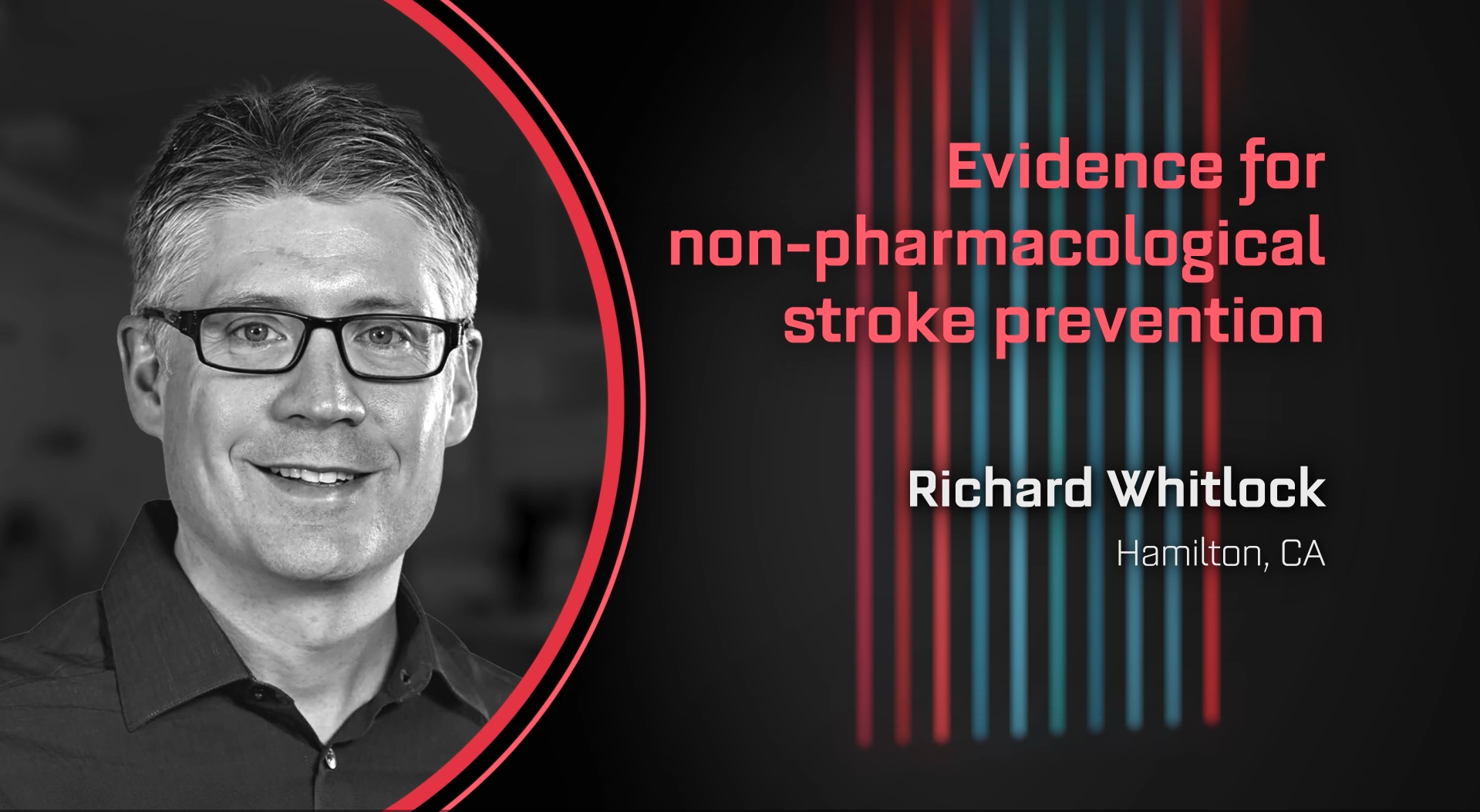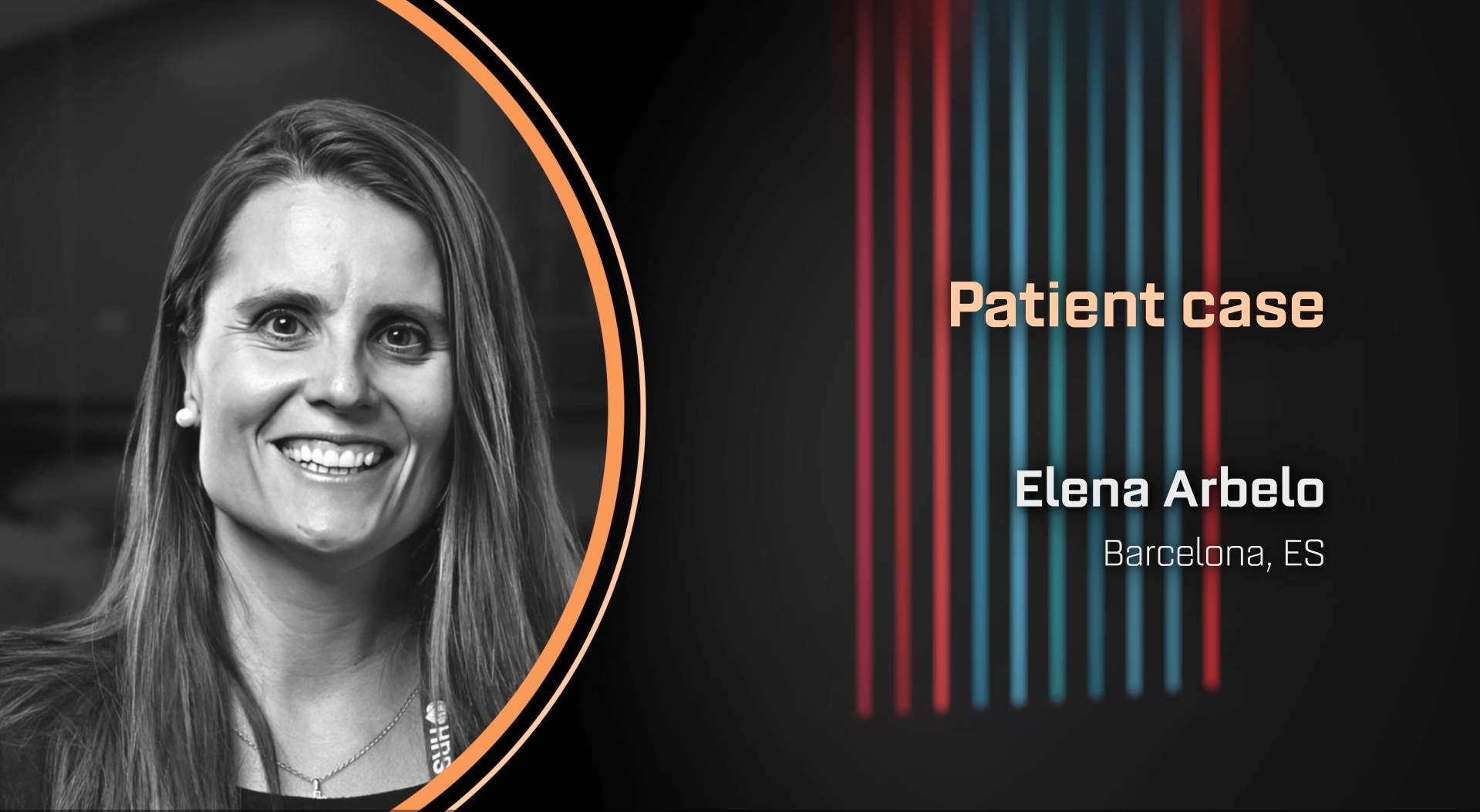AF Stroke Prevention – Applying New Guidance in the Real World
Published: 04 September 2024
-
Views:
 2421
2421
-
Likes:
 7
7
-
Views:
 2421
2421
-
Likes:
 7
7
-
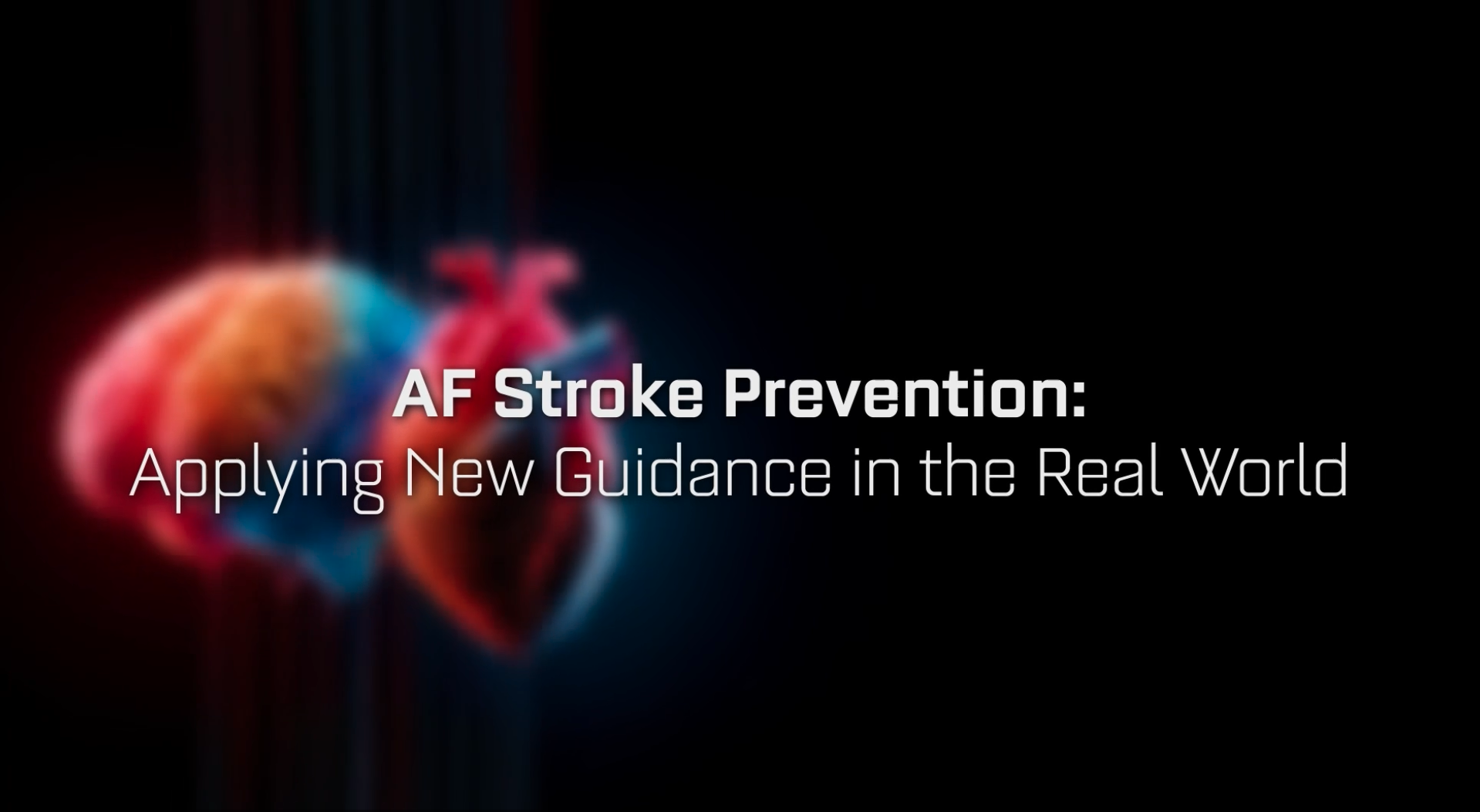 6m 49sPart 1 Introduction and Patient Case Gregory YH Lip, Elena Arbelo
6m 49sPart 1 Introduction and Patient Case Gregory YH Lip, Elena Arbelo
-
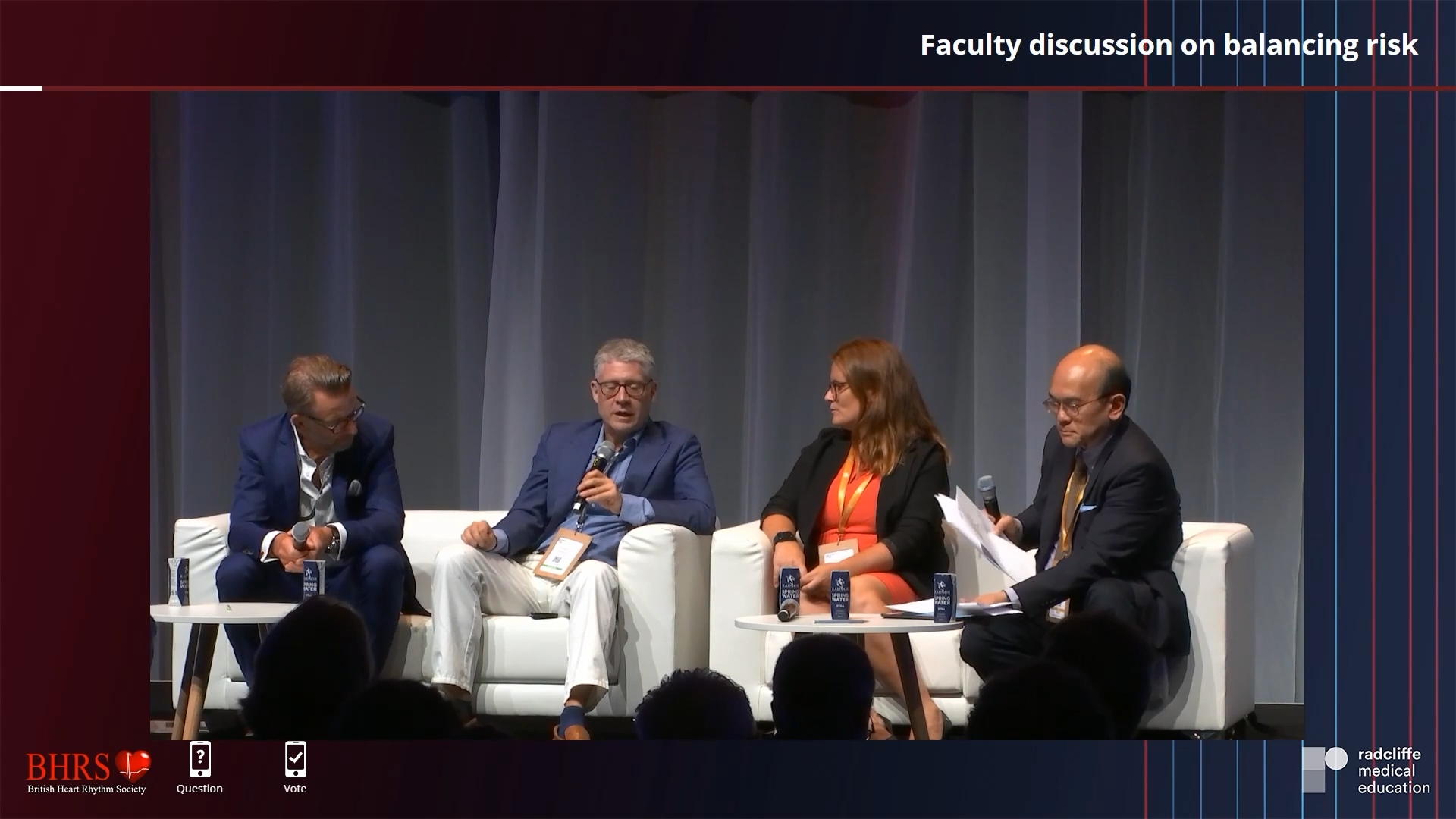 8m 24sPart 2 Balancing Risk – Faculty Discussion Gregory YH Lip, Elena Arbelo, Thorsten Hanke, Richard Whitlock
8m 24sPart 2 Balancing Risk – Faculty Discussion Gregory YH Lip, Elena Arbelo, Thorsten Hanke, Richard Whitlock
-
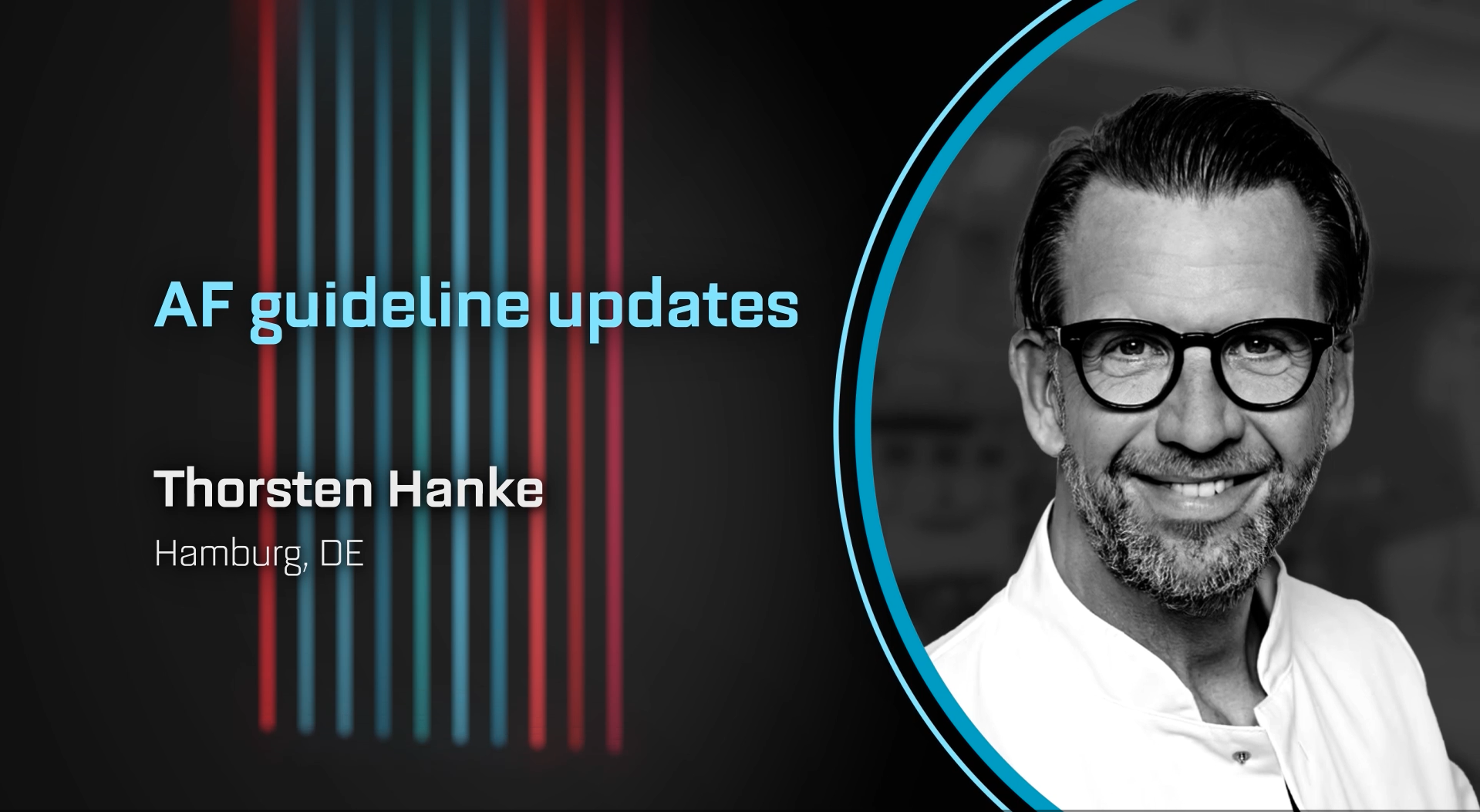 10m 1sPart 3 AF Guideline Updates Thorsten Hanke
10m 1sPart 3 AF Guideline Updates Thorsten Hanke
Overview
First presented at ESC 2024, this on-demand programme sees Prof Gregory Lip (University of Liverpool, UK) lead a faculty comprising Prof Elena Arbelo (University of Barcelona, ES), Prof Thorsten Hanke (Asklepios Klinikum Harburg, DE) and Prof Richard Whitlock (McMaster University, CA) review the application of the latest AF guidance in a clinical setting.
This case-based programme explores the considerations of risks in the assessment of treatment strategies, the impact of the guidelines on decision-making and the evidence supporting non-pharmacological stroke prevention.
Learning Objectives:
- Recall the risk of ischaemic stroke in AF patients
- Compare therapeutic efficacy and risk between left atrial appendage closure and oral anticoagulation in atrial fibrillation
- Review European guideline updates on the use of left atrial appendage closure in atrial fibrillation
- Summarise the clinical evidence behind non-pharmacological approaches to stroke prevention in atrial fibrillation
The live ESC 2024 symposium was CME-accredited, this on-demand version is not.
More from this programme
Part 1
Introduction and Patient Case
Prof Lip provides a brief introduction to the session, before Prof Arbelo presents the case of a patient with severe mitral regurgitation due to mitral valve prolapse, with persistent atrial fibrillation and severe LA enlargement.
| 1 session | |
| Introduction and Patient Case | Watch now |
Part 2
Faculty Discussion on Balancing Risk
Prof Lip leads the discussion on balancing risk, with considerations including a surgical approach over transcatheter edge-to-edge repair and the risk of stroke in AF post-surgery.
| 1 session | |
| Balancing Risk – Faculty Discussion | Watch now |
Part 3
AF Guideline Updates
Prof Hanke reviews the evolution of the AF guidelines and considers the implications for cardiologists, including the requirement to insist on concomitant AF ablation and peri-procedural left atrial appendage (LAA) closure, to not forget stand alone EP surgery for patients with persistent AF and to not stop oral anticoagulants after surgical LAA closure.
| 1 session | |
| AF Guideline Updates | Watch now |
Part 4
Evidence for Non-pharmacological Stroke Prevention
Prof Whitlock considers non-pharmacological stroke prevention, specifically left atrial appendage occlusion during cardiac surgery. He reviews the LAAOS III study, in addition to the multi-centre ATLAAC trial, that commenced early 2024.
Part 5
Patient Case Revisited, Faculty Discussion and Close
Prof Arbelo revisits the patient case in context of the 2024 ESC guideline recommendations for surgical left atrial appendage occlusion. Prof Lip leads a faculty discussion and moderates audience questions.
Faculty Biographies

Richard Whitlock
Richard Whitlock is a Professor of Surgery at McMaster University and a practising cardiac surgeon at Hamilton Health Sciences, Canada. Previously, he held a full-time research appointment at the Population Health Research Institute. He completed his residency in cardiac surgery in 2007, a fellowship in critical care in 2008, and a research fellowship in 2012. He holds both an MSc and PhD in Health Research Methodology – Clinical Epidemiology from McMaster University. Dr Whitlock has published over 120 papers in journals including The Lancet, Circulation, Anesthesiology, Journal of the American College of Cardiology, European Heart Journal, New England Journal of Medicine, and Thrombosis and Haemostasis.






